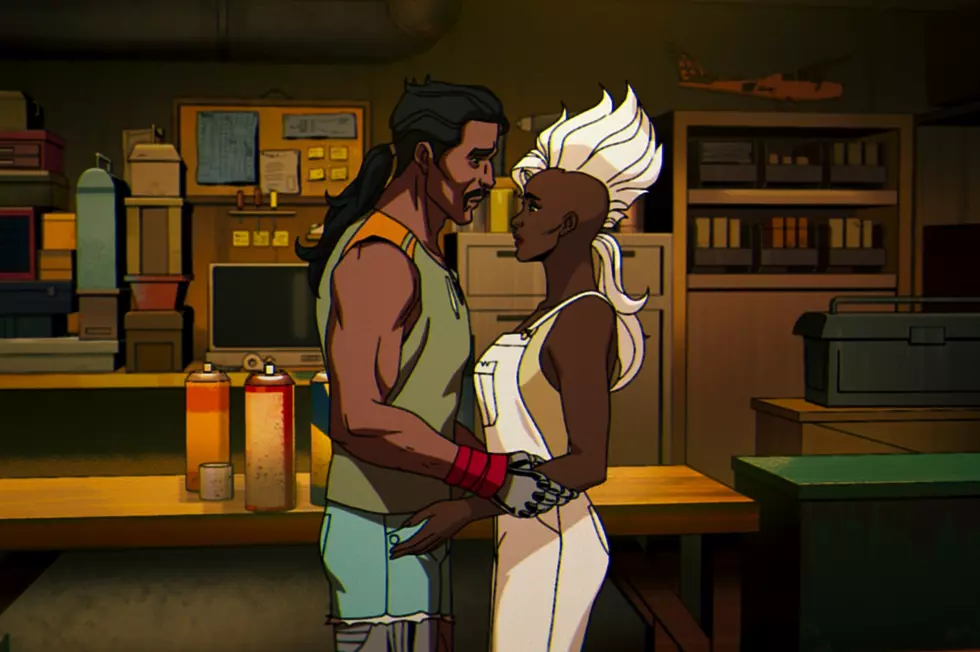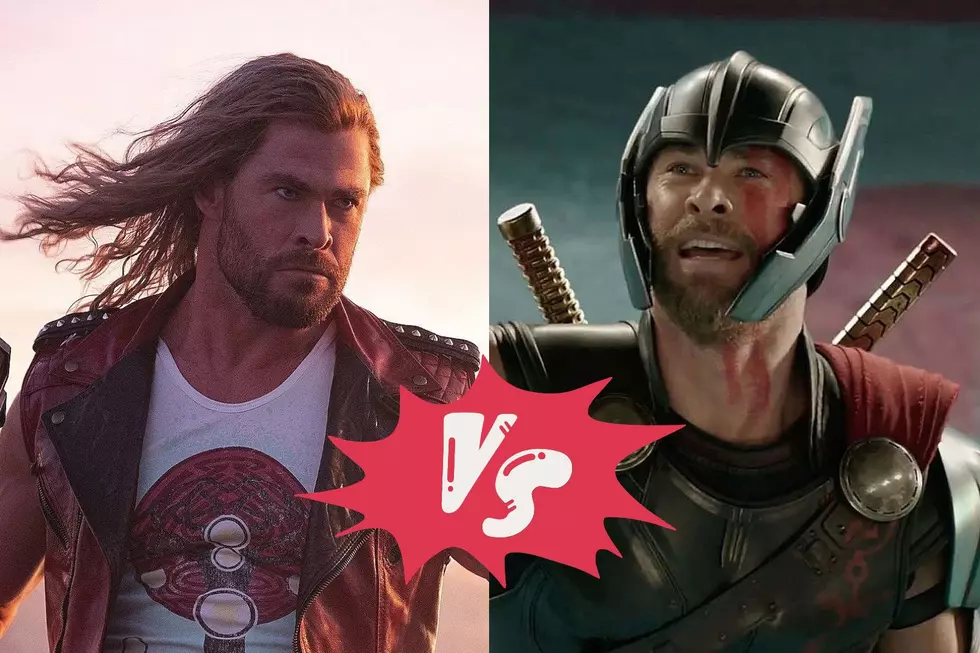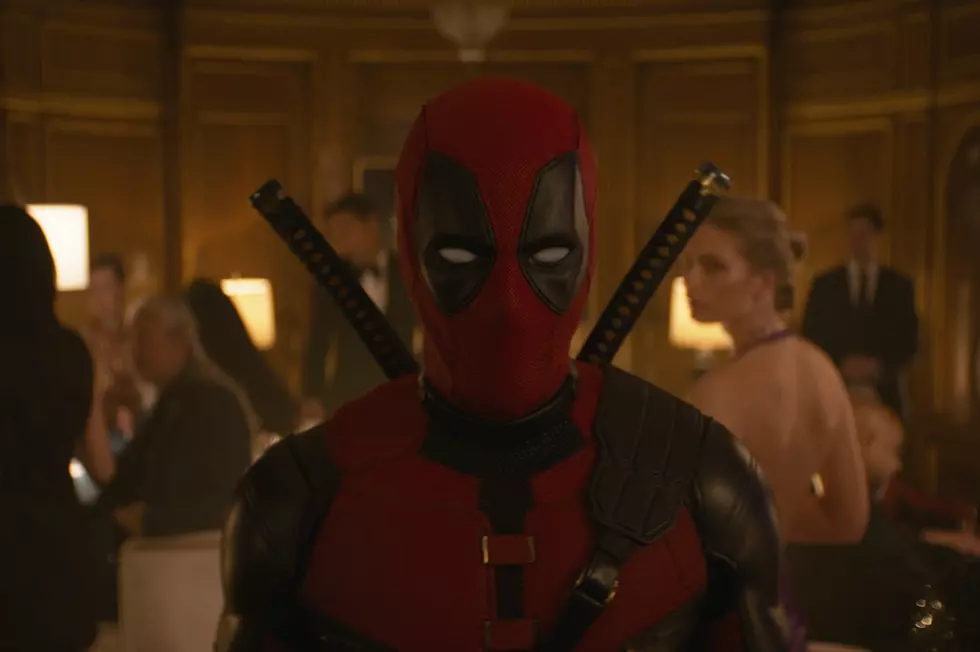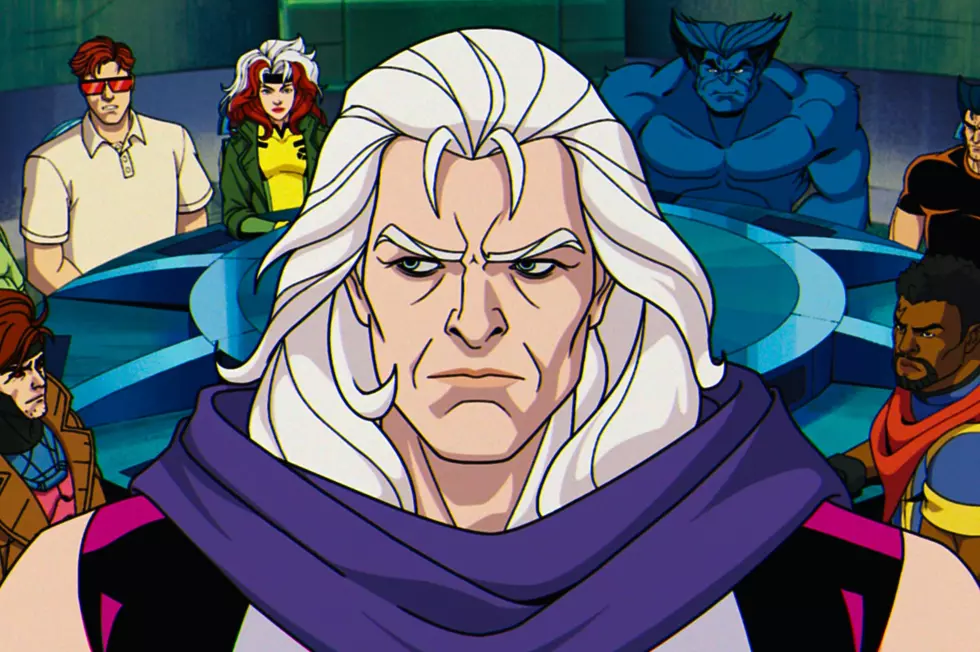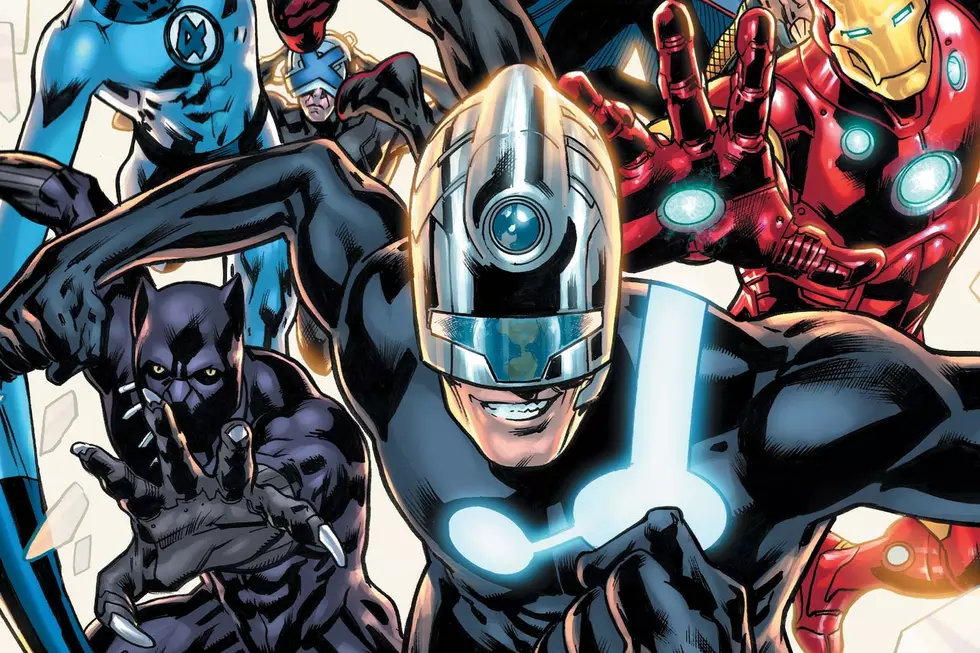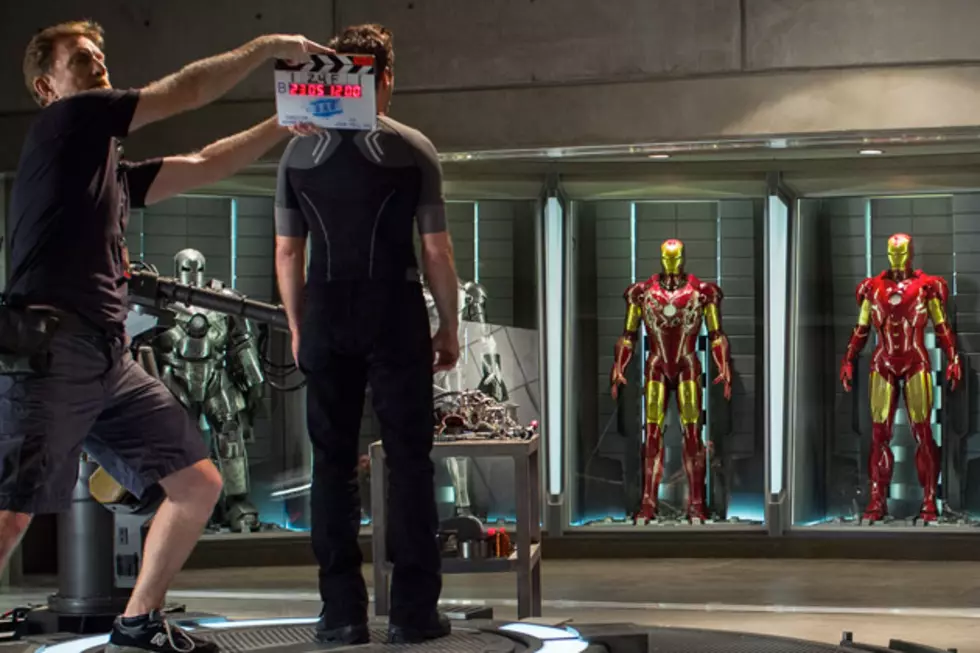
Interview: Director Shane Black on Why He Wanted to Make ‘Iron Man 3′ Like ‘Star Wars’
Although it’s the third installment in the series, 'Iron Man 3' operates in a new and different world than its predecessors. Taking place after the events in 'The Avengers,' the film examines the repercussions of Tony Stark surviving a near-death experience in order to save Earth from an alien invasion – PTSD, the possibility of other extraterrestrial invaders, and so on. But star Robert Downey, Jr. says that the change in the world within the film is symptomatic of changes in the one outside of it.
“On the first Iron Man, we went out and we went to Comic Con, and [Jon Favreau] had a flip phone in his hand and he goes, "This is how it's working from now. You know, the filmmakers, the artists, the departments heads they're all showmen and the audience is talking back, and they're going to ask you that question. In the post Avengers world, "what was it like for Tony and this and that?" So you kind of have to have thought about, and you have to have addressed it creatively.”
The man responsible for addressing it in 'Iron Man 3' is Shane Black, who directed the film and collaborated on its screenplay with writer Drew Pearce. We spoke to the pair at the film’s Los Angeles press day, where they talked about the changing landscape of Tony Stark’s life, and the changing world of superhero films within the Marvel Universe.
How did you join 'Iron Man 3?' And what were your ambitions coming into the film?
Shane Black: I can only imagine that having worked previously with Robert contributed to him calling me, and asking me aboard this somewhat more ambitious production. But yeah, I had worked briefly with him and sat with him and Favreau during the inception of the first Iron Men, during those early phases. And I was impressed with the project. I was impressed with both of them. And the chance to have a green lit picture where I got to work again with Robert Downey and reunite, and also spend time with Jon Favreau, who gave me endless tips and advice on this thing, was just so - too attractive to pass.
Our ambitions were to make sure that we had, in fact, a movie that felt like a worthy successor to the two previous Favreau films. And it’s - and to Marvel’s credit, they allowed us - they said, “We’ve done 'The Avengers,' we made a lot of money. But let’s not do that again right now. Let’s do something different.” And they allowed for a different, sort of stand-alone film, where we got to be more character centric and look basically back to basics at what Tony Stark would do next - what was left to tell of his story. And that was very appealing to me. So to make it more of a thriller and to make it more about Tony and less other-worldly, and sort of just ground it more - that was our intention. I hope we succeeded.
You’re well known for your R-rated action comedies, but this was obviously always going to be PG-13. What did you come up with that might have gone too far for that rating, and how tough was it to relinquish that F-word?
Black: You know, the F word, tempting as it always is, especially in film environments, was pretty easy because we - I had done a film for kids previously, called 'The Monster Squad.' That’s 1987, folks, and be careful. But then again, you were children then. That was ages ago. So coming into this, I had to go back and say, “I remember what it was like when I went to the matinee to stand in line for 'Empire Strikes Back' or 'Star Wars' or those types of films, and get excited all over again about that type of adventure - that you could appeal to a family but it was still edgy. You know, I don’t want to - we didn’t want to pander. We didn’t want to make a kiddie film. But we knew very well that we couldn’t, you know, go beyond the boundaries of PG 13.
Drew Pearce: That’s not to say we didn’t push it a little in the first couple of drafts.
Black: No, there - yeah - Tony only said f--- five times in the first draft.
Pearce: That is technically true, and we actually had to have a sit down conversation about the fact that you couldn’t say f--- in a PG 13.
Black: But there was a point when you would write for television, when I was coming up in this business, you would just say f--- anyway, and you would just know that they would take it out later.
Pearce: That was - that was weirdly the attitude. But everyone’s going to see this, see.
Black: Yeah, but basically there was no problem with that. I have no problem with tailoring material to the audience that it’s intended for, as long as you keep the edge - as long as you don’t condescend to that audience, I think that it’s absolutely spot on.
Pearce: Well, we’ve got a brilliant actors, as well, which helps so much because they can give it the swing and feel of grown-up conversation without necessarily having to hit the F button.
There’s a common theme that runs through a lot of your films, and it’s Christmastime. What is it that you like about putting a movie at Christmastime, and why did you feel that was right for 'Iron Man 3?'
Black: Well, it just sort of evolved, oddly enough, with 'Iron Man 3,' ‘cause I had resisted it. It was Drew who talked me into it, eventually.
Pearce: If I was gonna go see a Shane Black Iron Man 3 movie, then it had to be at Christmas, but there’s always a reason for it, as well.
Black: Yeah, there has to be - I think it’s a sense of if you’re doing something on an interesting scale that involves an entire universe of characters, and many - one way to unite them is to have them all undergo a common experience. And there is something at Christmas that unites everybody, and you - it just sort of already sets a stage within the stage, that whatever you are, you’re experiencing this world together. And I think that also, it just - there’s something just pleasing about it to me, ever since - I mean, I did Lethal Weapon back in ’87, and we did Christmas, and Joel liked it so much he put Die Hard at Christmas. And that had some - there was some fun to that. But you don’t have to do every film that way.
Pearce: There’s an interesting thing at Christmas, as well, like when you’re telling a story that’s about taking characters apart, it almost has more resonance if you put it at Christmas, and if you’re also telling a story about kind of lonelier characters, as well, then that loneliness is kind of heightened at Christmas, too.
Black: It’s a time of reckoning for a lot of people, where you take stock as to where you’ve been, how you got to where you are now, and the lonely - lonely people are lonelier at Christmas, and you tend to notice things more keenly, more acutely, I think.
Pearce: Plus, there was a kind of Christmas carol thing that we wanted to bring in for Tony, as well, a certain sense of -
Black: Meeting the Ghost of Christmas Past, in the sense that Harley is kind of him, as a young boy, just encountering all these different things that come to him, almost like a fever dream, when he’s at his lowest point. I think that was the idea, as well.
Pearce: So we’ve post-justified putting it at Christmas pretty roundly there.
Originally you had said that you didn’t want to use the Mandarin - you identified him as kind of a racist caricature. How did he evolve into what he became – something modern and less ethnically identified?
Black: I just thought it was an interesting idea, to try to mix it up so that if you’re gonna do something that involves a terrorist in the modern world, who’s just sort of a villain, who’s just sort of a guy that we’re all afraid of - why not say something about the entire experience of what it would take, for instance, to create a myth that was all things to all people, the true - from elements of traditional historic warfare, like swords and dragons, surrounded itself with icons that were recognizable, like the beard from Fidel Castro and the field cap from Gadhafi. Why not make an Uber-terrorist and then play with the idea of that - of a corporate world full of think tanks whose assignment, let’s say, was to cobble together the ultimate warfare specialist, and then have that man’s sole unifying characteristic be his undying hatred for America, such that he attracts to him these acolytes and disciples who respond to the myth. We thought that was an interesting idea, regardless of his ethnicity.
More From ScreenCrush
